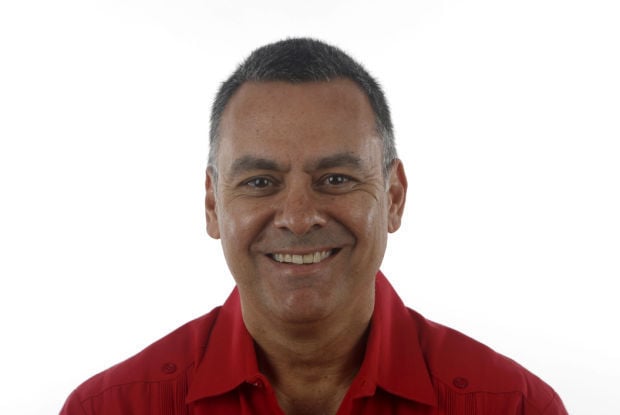When Malcolm Compitello was in junior high school in Long Island, he was placed in a Spanish-language class. The son of Italian-Americans had no choice.
It was the mid-1950s and the old Soviet Union had launched Sputnik, the first space satellite. In response, to keep up with the Russians, the U.S. government began to push math, science and international studies, including foreign languages in public schools.
At Compitello’s school, the top academic students were placed in Russian, German and French classes.
“Everybody else got Spanish,” Compitello said.
As it turned out, the randomness of placing the young Compitello into a Spanish class was fortunate — for him and for Tucson. Compitello would go on to study Spanish literature and culture in college, and delve into a lifelong pursuit of scholarly exploration and teaching, earning him well-deserved recognition.
Compitello, who has been head of the University of Arizona’s Spanish and Portuguese department since 1995, received the Award for Distinguished Service from the Association of Departments of Foreign Languages. The organization honored Compitello for his national and international service for research and teaching and for producing innovative curriculum, including the department’s publication, the Arizona Journal of Hispanic Cultural Studies.
“Moreover, you are among the legendary mentors of our profession, nurturing your own students with extraordinary acumen,” said the Jan. 20 announcement letter.
Compitello, 69, put his award in another context: It’s a recognition that he’s been in academia for a long time.
Apparently el profesor has a sense of humor, and he is much too modest.
To at least two of his former doctoral students, who number about 100, Compitello is more than deserving.
“His modesty about receiving the ADFL Award for Distinguished Service hides his well-earned reputation for putting people first and is well-deserved for an unmatched career,” Benjamin Fraser, professor and head of the foreign-languages department at East Carolina University in Greenville, wrote in an email.
“While as a grad student at the University of Arizona it was already very clear to me that he saw the profession through a very human lens,” added Fraser, who currently is the senior editor of the Arizona Journal, entering its 18th year.
Susan Larson, associate professor of Spanish at the University of Kentucky, met Compitello while she was an undergrad student at Michigan State University in East Lansing, where Compitello taught for 15 years.
When Compitello came out West, she followed her role model to Tucson, “the last place I thought I would live and study,” said Larson.
Her former professor functioned at a high level, “consistently linking his research to social justice,” said Larson, who is co-authoring a book with Compitello.
Another one of his students is María Dueñas, a professor of English language and literature in Spain, and an author of historical fiction.
When Compitello completed his doctorate at Indiana University in Bloomington in 1979, Spanish had emerged as an integral language in the United States. With the growing presence of Latin American immigrants came an equally growing demand for understanding in this country of Latin American culture and the wider Spanish-speaking world.
Today Spanish-language instruction is a critical tool for the still young 21st century.
At the UA, under Compitello’s leadership, the department has grown to become the second largest in the country, he said. About 5,000 students, from freshman to doctoral candidates, are taught by 22 professors and 80 graduate teaching assistants. The UA graduates four to six doctoral graduates each year — a rate that’s third in the nation, he added.
Ultimately, for Compitello, teaching is the golden nugget. It continues to motivate and challenge him. “Just getting a student back on track is satisfying,” he said.
His junior high school got it right.
“This is the world’s greatest profession.”





